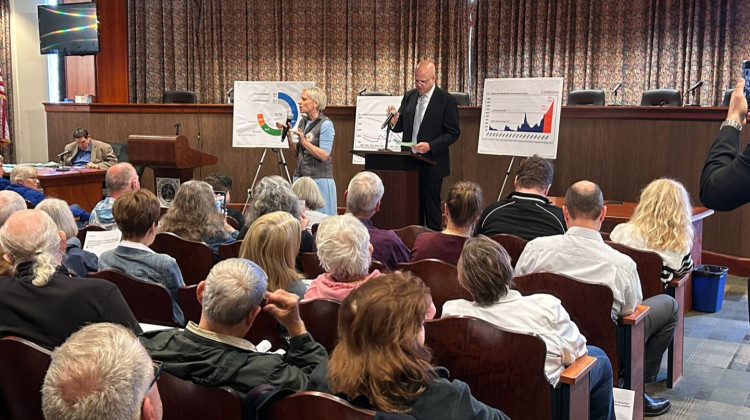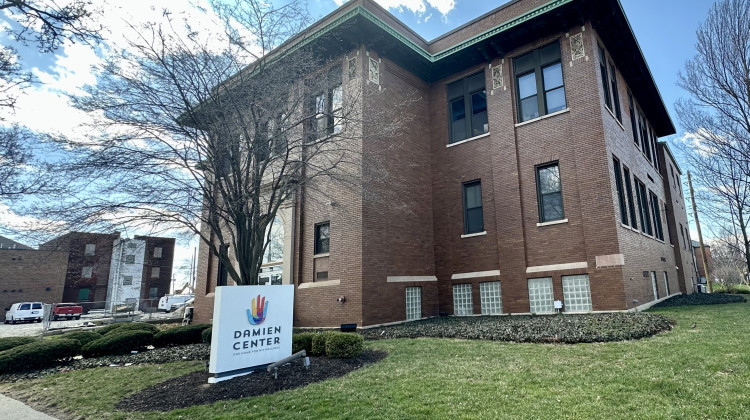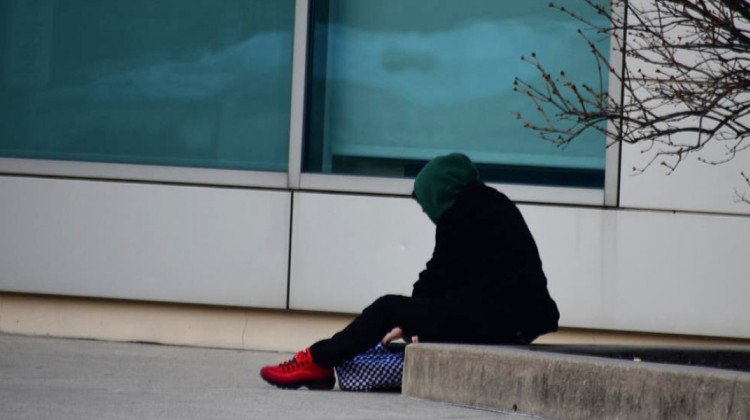
According to an order from the Indiana Supreme Court, judges hearing eviction cases in the state must inform the landlord and tenant of pre-eviction resources.
Lauren Chapman/IPB NewsListen to the broadcast version of this story.
The Indiana Supreme Court is trying to help avoid evictions by getting landlords and tenants into diversion programs.
Last month, the state Supreme Court created an eviction task force, intended to help better direct resources to Hoosiers in need. That task force’s work resulted in an order from the Supreme Court that takes effect Nov. 1.
Beginning next month, judges hearing eviction cases in the state must inform the landlord and tenant of pre-eviction resources. Those include emergency rental assistance, legal assistance and the availability of the state’s free landlord-tenant settlement program.
READ MORE: You asked about eviction and housing issues. We've got answers
Join the conversation and sign up for the Indiana Two-Way. Text "Indiana" to 73224. Your comments and questions in response to our weekly text help us find the answers you need on statewide issues.
If both the landlord and tenant agree to pursue any of those options, the eviction is put on hold for 90 days, with the court monitoring their progress. And records of the eviction proceeding are generally kept confidential, unless one of the parties stops participating in the diversion efforts or breaks a settlement.
But during that 90-day hold, if one of the parties doesn’t want to participate in the diversion program anymore, the eviction proceeding moves forward.
Contact reporter Brandon at bsmith@ipbs.org or follow him on Twitter at @brandonjsmith5.
9(MDAyMzk1MzA4MDE2MjY3OTY1MjM5ZDJjYQ000))
 DONATE
DONATE






 Support WFYI. We can't do it without you.
Support WFYI. We can't do it without you.